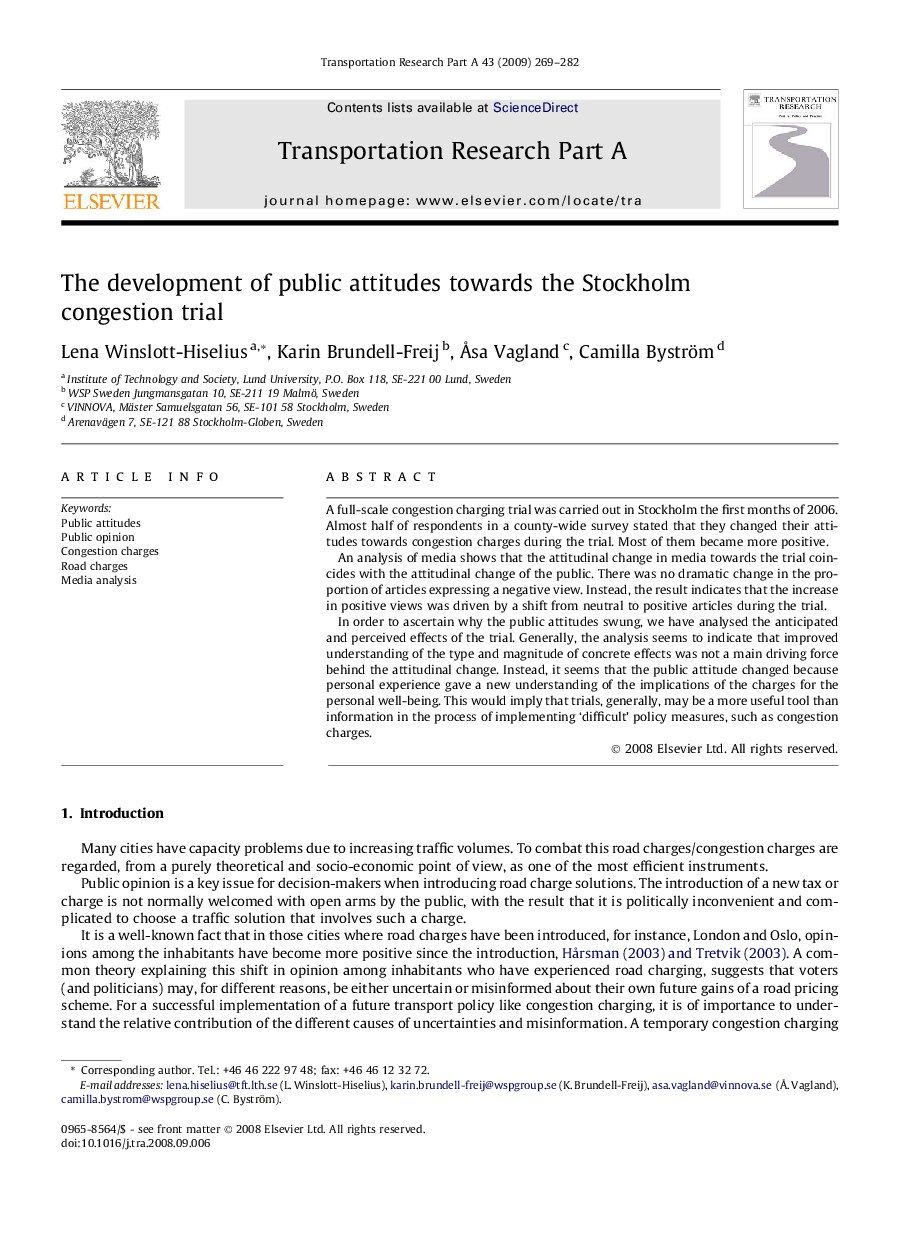| Article ID | Journal | Published Year | Pages | File Type |
|---|---|---|---|---|
| 311385 | Transportation Research Part A: Policy and Practice | 2009 | 14 Pages |
A full-scale congestion charging trial was carried out in Stockholm the first months of 2006. Almost half of respondents in a county-wide survey stated that they changed their attitudes towards congestion charges during the trial. Most of them became more positive.An analysis of media shows that the attitudinal change in media towards the trial coincides with the attitudinal change of the public. There was no dramatic change in the proportion of articles expressing a negative view. Instead, the result indicates that the increase in positive views was driven by a shift from neutral to positive articles during the trial.In order to ascertain why the public attitudes swung, we have analysed the anticipated and perceived effects of the trial. Generally, the analysis seems to indicate that improved understanding of the type and magnitude of concrete effects was not a main driving force behind the attitudinal change. Instead, it seems that the public attitude changed because personal experience gave a new understanding of the implications of the charges for the personal well-being. This would imply that trials, generally, may be a more useful tool than information in the process of implementing ‘difficult’ policy measures, such as congestion charges.
